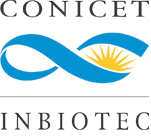Pest Management Science, 7 de marzo, 2024
Abstract
Background
Plant defense elicitors are valuable tools in sustainable agriculture, providing an environmentally friendly and effective means of enhancing plant defense and promoting plant health. Fusarium Head Blight (FHB) is one of the most important fungal diseases of cereal crops worldwide. The PSP1 is a novel biopesticide formulated based on an elicitor, the extracellular protein AsES, from the fungus Sarocladium strictum. The present work aimed to evaluate the effectiveness of PSP1 in controlling FHB under field conditions. Experiments were conducted during three consecutive growing seasons (2019, 2020, and 2021). Three biostimulant treatments were tested in different physiological stages (from late tillering to heading stage), and FHB inoculations were performed at anthesis. Disease parameters, seed parameters, grain yield, and grain quality parameters were evaluated.
Results
Depending on the year and the genotype, reductions in disease incidence (up to 11%) and disease severity (up to 5%) were reported, although these differences could not be attributed to the use of the PSP1 biostimulant. Occasional improvements in seed parameters and grain quality were observed, suggesting that early treatments could work better than late treatments, probably due to early activation/priming of defense response mechanisms. However, more studies are deemed necessary.
Conclusion
The use of PSP1 biostimulant in commercial wheat crops could be a biological alternative or complement to traditional chemical fungicides to manage FHB. The reduced environmental impact and the potential benefits in grain yield and quality are other reasons that can generate new adherents of this technology in worldwide agriculture systems in the coming years.

